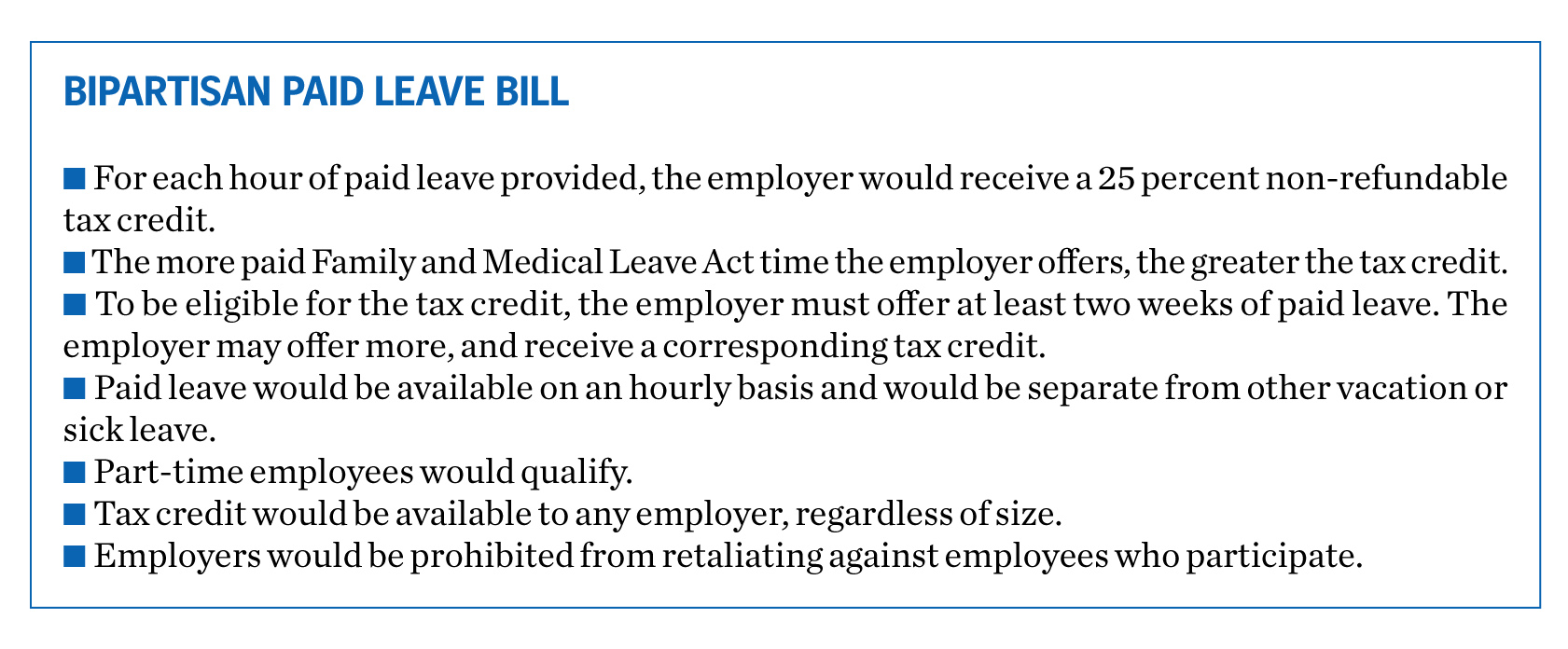Presidential candidate Bernie Sanders has made paid family leave a campaign issue, calling for 12 weeks of federally-mandated leave if an employee has a child or is diagnosed with a serious medical condition.
“Workers in every other major industrialized country in the world get a better deal than workers in the United States. That is wrong,” Sanders said in June.
Sens. Deb Fischer, R-Neb., and Angus King, I-Maine, seek a more moderate, incentive-based approach to the problem. Through the Bipartisan Paid Leave Bill, employers would receive a tax credit if they grant at least two weeks of paid leave. This leave could be taken in piecemeal fashion, even hourly, which could help wage earners.
Fischer told the Washington Examiner that this idea can be sold to Republicans, who would otherwise oppose the mandates favored by Sanders and Hillary Clinton.
“I think we have a reasonable solution,” Fischer said. “A proposal that can certainly pass, here in the Senate … I get frustrated with the rhetoric out there, and not being able to accomplish things … This is going to be an incentive offered so we can try and help those who are out there struggling, and help family businesses.”
“Politics is the art of the possible,” King told the Examiner. King, though an independent, formally caucuses with Senate Democrats. “This is a real need, and I believe we’ve come up with a creative way to address it. I think it’s a real step forward.”
Conventional political wisdom argues that Democrats are more interested in federal rules requiring employers to provide paid leave. Yet King was was less optimistic about his peers in his caucus, saying Democrats who favor a mandate could be holdouts.
King said he favors an incentive-based approach because it’s good politics and policy.
“I like the incentive approach better, because it allows companies to tailor their decisions based upon their own particular situations,” King said.
Aside from the mechanics of passage and implementation, King and Fischer were passionate about the necessity of some kind of paid family leave. “We’re one of only three countries in the world that don’t have paid family leave,” King said.
The Family and Medical Leave Act of 1993 requires employers with 50 or more employees to provide up to 12 weeks of unpaid leave. The act does not provide a structure for smaller businesses and the people who work for them, and does not incentivize paid leave, a sticking point for Fischer.
“I look at this as a small business, family business proposal,” Fischer said. “They would be able to offer paid leave to their employees. Sen. King and I see it really helping lower-wage earners, hourly-wage earners, so they’re able to meet the demands that they face — when they have a sick kid, when they have to take care of a parent, when they’re being squeezed there.”
“This would allow [workers] to take off a few hours to take their child to the doctor,” Fischer said.

